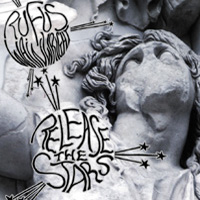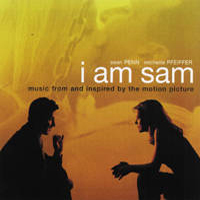 Rufus Wainwright
Rufus Wainwright
Release the Stars (Geffen)
by Tim Den
After repeated listens of Release the Stars, the highly anticipated new album from (in my opinion) one of our generation’s best songwriters, I’ve come to the conclusion that almost all of the press that it has received so far has missed the point. Presumably guided by the bio and quick cosmetic glances at opener “Do I Disappoint You,” many reviews simply ride the “oh, he’s gone even more orchestral!” train in circles, opting to focus on the most obvious and arguably shallow trait of the record. Why? Because it’s the easy way out. Because people don’t fucking pay attention to details anymore. Because our appearance-obsessed modern world cares a helluva lot more about what instruments are used in a song instead of how well the song is written. So much so, I’m willing to bet, that they’ve even skipped over the part of the bio where Rufus Wainwright himself talks about the theme of Release the Stars: Celebration. To paraphrase the man, Release the Stars is a call to the early 30-somethings to embrace the triumphs and mistakes of their 20s, the insecurities of their teens, and the fading memories of their childhood and move forward with nothing but love in their hearts. This is a record about forgiving, optimism, and looking forward. Of course, like all Rufus records, it takes a while for the songs and the themes to sink in, but once they do, they’re as clear as day.
But before he can boldly march into the unknown with his head held high, Rufus must take stock of what has past. Having wallowed in hedonism during Poses and survived to tell the tales on Want One and Want Two, Release the Stars has him looking at life in perspective. After almost losing his mother recently, he has admitted that all of his own drama seems like a molehill in comparison. So when he sings of wearing his heart between his legs and how “life will take that little heart and bring you to your knees/threatening to break it,” there’s a sense of humility instead of the bombast found in his past works. Both tragedy and elation are spoken of in less over-the-top tones, even if the music’s orchestration is swelling like a tidal wave. Rufus might’ve used sweeping symphonies to accentuate his emotions in the past, but here he’s only indulging in his love of arrangements and melodies. The staccato strings and giant brass sections and thundering percussion are no longer reflections of his inner self, they’re just him learning to accept such operatic flourishes as a part of his sonic palette. No, the inner Rufus now is a grown, mature, much more at peace man who isn’t afraid to strip back the accompaniment to reveal his new state. On tracks such as “Going to a Town,” “Not Ready to Love,” and “Leaving For Paris No 2,” you can really sense his newfound stability through the minimal setting. Okay, so “stability” is a relative term – he still doesn’t think he’s ready for commitment – but he’s whole enough to think about the other person instead of himself for a change (“I’m not ready to love/until I’m ready to love you the way you should be loved”). And hell, since the writing of that song, he moved in with a serious boyfriend, so what more proof do you need that he has turned a corner in his life?
And just in case you still aren’t following, Rufus belts it out on the closing title track, a glorious gospel/showtune that – lyrics or not – SCREAMS “celebration!” “14th Street” (off of Want One) might’ve been a homecoming, but it’s here that victory is claimed. Just try and not get swept up by the giant ending. The message is clear: Collect yourself, let go of negativity, and really make this upcoming decade the best it can be. Shortsighted reviews might want to distract you with gimmicky mentions of production values, but take the songs to your heart and you will find Release the Stars‘ truth.
Now that Rufus has battled through decadence, disillusionment, near death, love loss, and finally love gained, it’s time for us to recognize him as a proud product of such turbulent times instead of just The Guy Who Uses Orchestras (and Isn’t The Divine Comedy). Cuz if he can come out the other side, learn life’s hard lessons, and still continually push modern pop songwriting’s envelope without losing his trademark Baroque touch, can’t we at least try to keep up?
(www.geffen.com)



